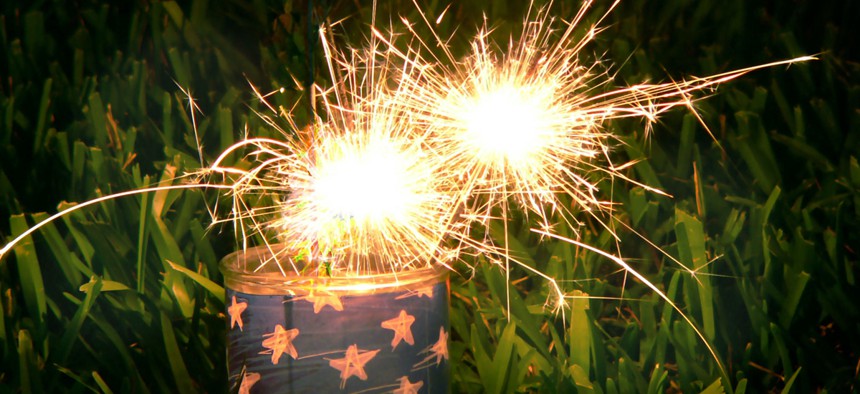Coronavirus Sparks New Debate Over City's Fireworks Ban

Voters enacted a fireworks ban in 1988 and upheld it a year later after a petition placed the matter back on the ballot. Shutterstock
City officials in Bismarck, North Dakota may ask voters whether they'd like to repeal a ban on home fireworks within the city limits, a proposal the mayor said was partially motivated by his desire to provide families with more activities to do together at home.
Residents in Bismarck, North Dakota could have the opportunity to vote to repeal a fireworks ban within the city limits, a debate reignited, in part, by the ongoing Covid-19 pandemic.
Private use of fireworks within the city of Bismarck was snuffed out by voters in 1988 after the city’s safety council publicized the number of injuries that resulted from at-home pyrotechnics displays. Opponents of the ban petitioned successfully to have the issue placed on the ballot the next year, where voters upheld it.
But now, during an unprecedented pandemic that’s kept residents confined to their homes and wary of large gatherings, some officials would like to revisit the restrictions. Mayor Steve Bakken told the city commission at its June 9 meeting that the ordinance could potentially be loosened to give residents a way to celebrate the Fourth of July holiday while adhering to public health guidelines, including social distancing.
“I think there’s something we can do to clean this up a little bit and maybe relax some statues,” Bakken said. “I’d like to see something where you can have that family quality time within city limits—but still with restrictions on time, what fireworks could be ignited in your own yard, and dates."
"People are looking for things to do with their families outside while social distancing,” he told the Bismarck Tribune after the meeting. “Shooting off fireworks fits that perfectly.”
But some officials questioned the need to fire up the issue at all. The ban was effective, said Commissioner Shawn Oban, who pointed to the immediate drop in police and fire calls—from a total of 441 to 19—the year after it was enacted. And there’s been no public discussion or interest among residents in repealing it, he added.
“Why is it now that we feel like this is something that the public wants to weigh in on?” he said. “I don’t see a hard enough ‘why’ where I would want to put it on the ballot."
Commissioners declined to make a decision themselves, noting that voters had decided the issue the first time and should have the opportunity to weigh in on it again. Commissioner Nancy Guy said she had fielded a handful of phone calls on the matter since the board discussed it at an earlier meeting, the vast majority of which were “vehemently against” the idea of repealing the ban.
“This is an issue that’s going to be a real hot button with our community, and you’re darned if you do and you’re darned if you don’t at the table,” she said. “I really think this is an issue we should have on the ballot for our voters to decide.”
The board asked for more information, including potential impacts on sales tax and updated event reports from police and fire after the July 4 holiday—meaning even if the matter goes before voters, they won’t have an opportunity to celebrate with fireworks until at least next summer.
Kate Elizabeth Queram is a staff correspondent with Route Fifty and is based in Washington, D.C.
NEXT STORY: How—and When—Can the Coronavirus Vaccine Become a Reality?





